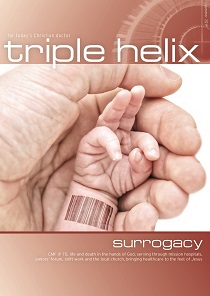The latest abortion statistics from the year 2018 (1) show that abortion numbers have hit a ten-year high, with 205,295 abortions in England and Wales, an increase of 7,762 abortions from the previous year.
A breakdown of the figures shows some particularly disturbing developments. For example, there has been a steady rise in repeat abortions, reaching 78,998 in 2018. This means that 39% of women undergoing abortions had one or more previous abortions, compared to 33% in 2008. For women aged 30 and over having an abortion in 2018, almost half (48%) had previously had one or more abortions.
Can we really just blame this level of repeat abortions on poor contraception advice or lack of availability of contraceptives? It seems that abortion is being used as a form of contraception now. One young woman, who had her first abortion at the age of 18 and then another three by age 22, was interviewed a few years ago about how she felt having several abortions, she said: 'It does get easier, the more you have. I know that sounds really bad but that's how it is... I just think I was really careless...it was down to me, but I should have been more responsible because I've killed a life now, and it wasn't that baby's fault...' (2)
Another trend in the statistics is the sharp increase in abortions carried out using pills - medical abortions. In 2008, 37% of abortions were medical. By 2018, the proportion was 71%. The use of abortion pills is advocated by abortion providers as a safe and simple procedure. However, a large Finnish study of 42,600 women found that women had four times as many serious complications after medical abortions than surgical abortions: 20% compared to 5.6%. Rates of surgery after medical abortion can be up to 33% for later abortions. These are costs borne by hospitals, not abortion clinics.
Abortion providers (with obvious financial and ideological vested interests in increasing numbers of abortions) are now driving campaigns to make obtaining a medical abortion as easy as possible, removing the administration of the abortion pill misoprostol from medical oversight and removing legal restrictions on abortion. This is likely to cause these statistics to get even worse.
There has also been an increase in disability-selective abortions up to 3,269. (3) This figure includes abortions carried out after 24 weeks gestation; a number that has increased for babies diagnosed with Down's syndrome. This is likely to be partly attributed to the private availability of non-invasive prenatal tests (NIPT) and is a situation that will become worse as the government moves ahead with their proposals to implement NIPT testing into the Fetal Anomaly Screening Programme.
Every one of these abortions represents a failure of our society to protect the lives of babies in the womb and a failure to offer full support to women with unplanned pregnancies.
Review by Philippa Taylor, CMF Head of Public Policy































